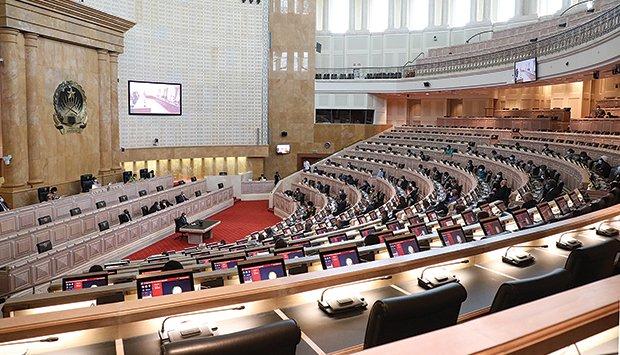Africa-Press – Angola. This Thursday (10th), the deputies continue the discussion for the approval of the proposed Law of the new Code of Administrative Procedure, which will allow the President of the Republic, as Head of the Executive Power, to adapt the procedural rules on litigation administration to the legal-constitutional reality and implement the fundamental rights and freedoms of citizens, enshrined in the Constitution.
The legislation that governs the performance of the Angolan Public Administration was almost entirely approved in the 1990s, when the Constitutional Law of 1992 was in force, which was conceived in a context of political transition in Angola, with emphasis on the signing of the Bicesse Accords, of 31 May 1991. The Constitutional Law of 1992 enshrined, for the first time, an administrative system, highlighting the fundamental rights of citizens and obedience to the law as a standard that defined the performance of the Public Administration.
For the construction of the new Angolan Administrative Law, in addition to significant developments in these matters of Administrative Procedure, with the revision of Decree-Law 16-A/95, a profound reform of administrative litigation that will mark the evolution of the Law Administrative in the near future.
The Code adopts a procedural model that seeks to break with the model currently in force in Angola with new solutions, aimed at reinforcing the effectiveness of judicial protection that, as the new Angolan constitutional text seems to advocate, administrative litigation can provide in a Rule of Law and Democratic State. of the 21st century.
According to the grounds for approving the law, the legislation on national administrative litigation is limited so far to providing for the contentious appeal for annulment and the provision for suspending the effectiveness of the act as central figures, both institutes incapable of ensuring the protection effective jurisdiction, creating a reality of the clear lack of administrative justice in Angola.
It is therefore necessary to define new contentious means of realizing rights, such as actions to obtain the recognition and realization of a legally protected right or interest, instead of simple appeals, guaranteed by effective mechanisms for the execution of judicial decisions. , which can only be subject to execution constraints on tighter grounds in favor of the Public Administration.
For More News And Analysis About Angola Follow Africa-Press






